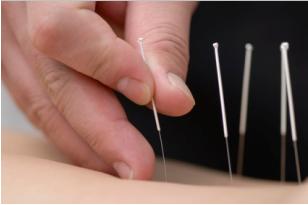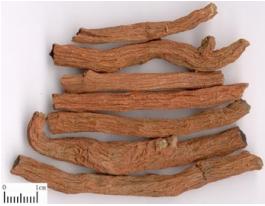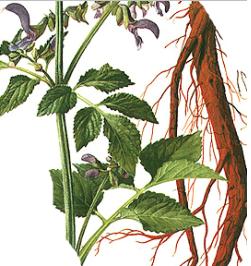TCM Popularity in US Market
TCM's Popularity in US Market
The FDA-approved Drug with Salvia Root Extract
Traditional Chinese medicine (TCM) has gained legal and consumer recognition in the US in the last 30 years, but achieving its current status was no simple task. Back in the 1970s, TCM had no legal status, and most Western doctors were hostile to non-conventional medical practice. In 1990's, Chinese herbs were already quite popular, especially in the Chinatowns of big American cities. However, in those days, Chinese medicine was not a legal entity. Though California was the first state to legalize acupuncture in 1978, Chinese herbal medicine continued to remain in the "twilight zone" until the US Congress passed the Dietary Supplement Health and Education Act in 1994.
The US Food and Drug Administration (FDA) defines a "dietary supplement" as a product taken by mouth that contains a 'dietary ingredient' intended to supplement the diet which includes vitamins, minerals and herbs or other botanicals. Thus, Chinese herbal declared a "dietary supplement" can not legally proclaim that they can treat and cure illnesses and diseases. However, TCM is an ancient practice for treating illnesses and diseases, and the TCM method of perceiving diseases is quite different from Western medicine, like Ying/Yang, cold/heat, interior/exterior, deficient/firm, Qi/blood, dryness/dampness...etc.
Acupuncture
Nowadays, the demand for acupuncture is growing fast in the United States, and acupuncture is legitimated in most states in the US. Insurance companies pose another major threat to the legitimacy of the practice, making a distinction between acupuncture treatments and Chinese herbal treatments. A patient can make an insurance claim for acupuncture but not for herbal treatment. Insurance companies won't pay for treatment of diseases with herbal medicine. Acupuncture coverage depends on the insurance policy and its restrictions, as well as the conditions of the patient.
Nevertheless, there is a ray of hope for Chinese herbal medicine to be legitimized for treatment of illnesses and diseases. In July 2010, the new drug with Salvia Root (Dan Shen, 丹參), a Chinese herbal treatment for angina and coronary heart disease, successfully completed the FDA's Phase II clinical trials. Once it passes Phase III investigations, which is estimated to happen in 2013, then it would be the first-ever Chinese medicine to become a prescription drug in the US. And this would be an FDA endorsement of the herbal combination to treat potentially serious illnesses.
While it is generally believed that the FDA-approved new drug with Salvia Root could pave the way for an increased acceptance and use of Chinese medicine by certain members of the medical profession, some TCM practitioners think it will mean "losing access". They suppose Chinese herbal medicine should be prescribed by a properly trained herbal practitioner. This is because TCM practitioners do not diagnose illnesses and diseases in the same way as Western medicine, and don't prescribe herbal medicine with the "one dose fits all" mentality which dominates Western medicine.
If the new drug with Salvia Root is standardized as a prescription drug, it is possible that it would be prepared in a different formula from those sold by acupuncturists. Due to the chemical complexity of Chinese herbs, it would be very challenging to make herbs into a pharmaceutical drug which contains one or two molecules. If the new drug with Salvia Root can be approved by FDA, in the long run, it will help legitimize TCM in the eyes of the Western communities and even stimulate more investments in Chinese herbal medicine.
Sun Ten Pharmaceutical manufactures the herbal extract granule of Salvia Root (Dan Shen, 丹參), and it has been the No. 1 top-selling single herb product in Taiwanese TCM market. According to TCM, Salvia Root can invigorate blood circulation, cool blood, nourish blood, calm mental irritability, and nourish the Heart. It is traditionally used to treat blood stasis, blood heat, metrorrhagia, flank pain, chest pain, postmenstrual abdominal pain, amenorrhea, abdominal pain due to postpartum stagnant blood, arthralgia due to wind dampness, irritability, insomnia, and palpitation. In addition, in the formula category, we produce the formula with Salvia Root as one of its ingredient herbs, Ginseng & Zizyphus Formula (Tian Wang Bu Xin Dan).
Salvia multiorrhizae Bunge


